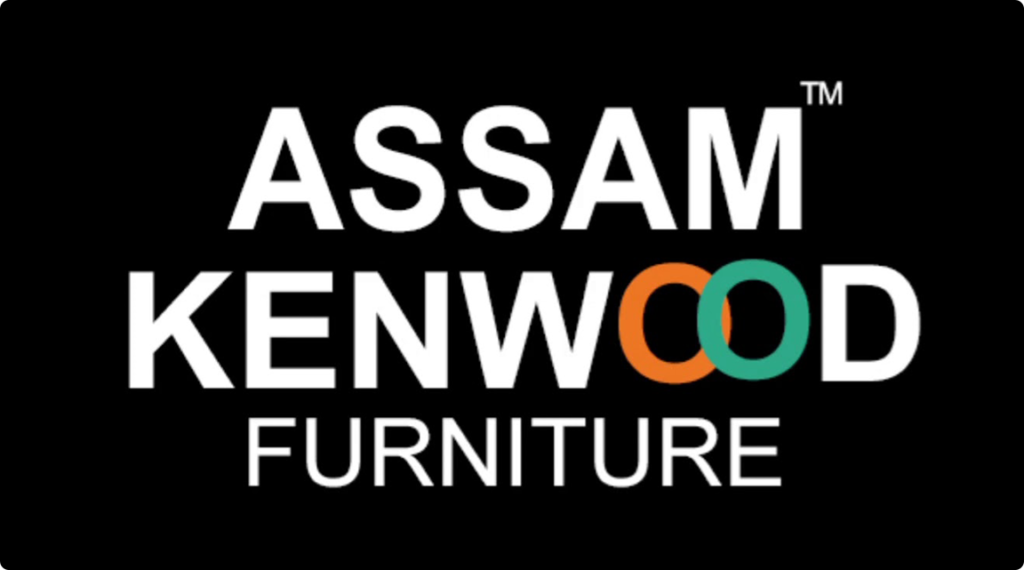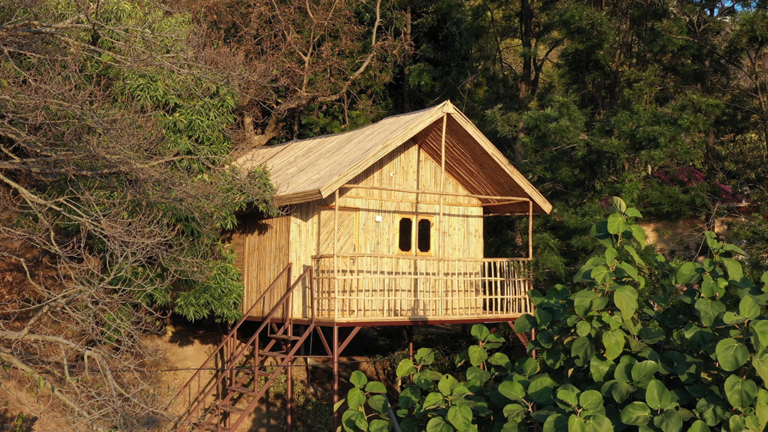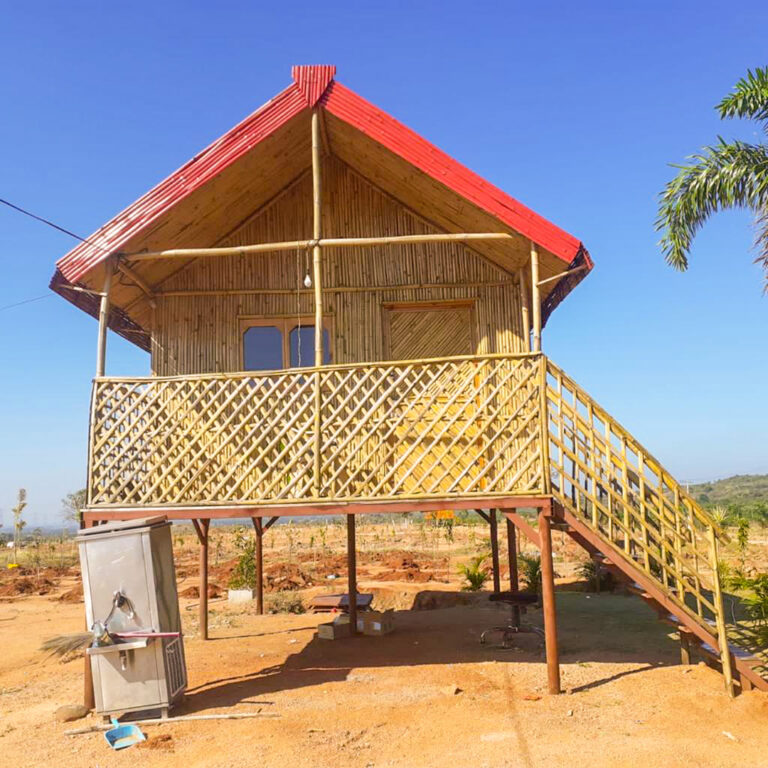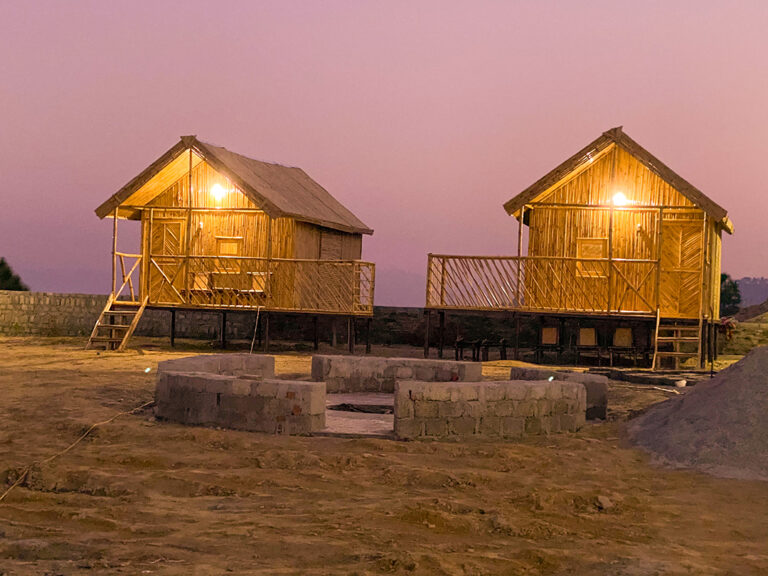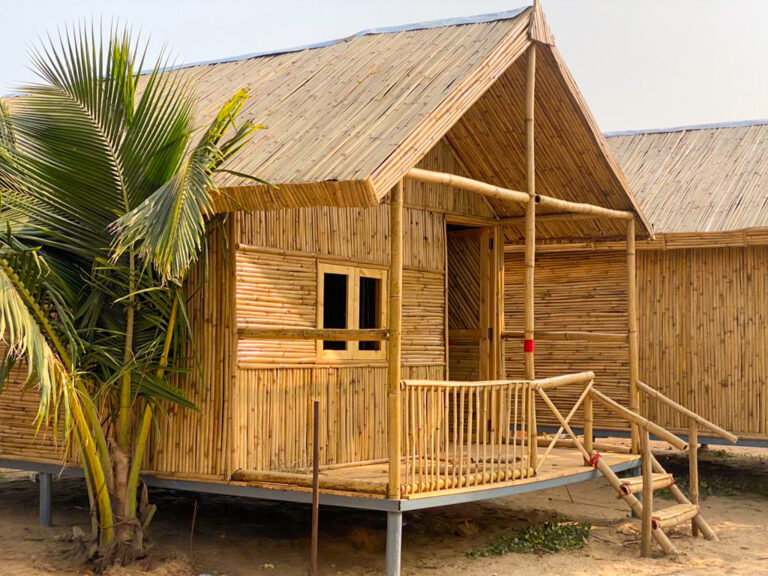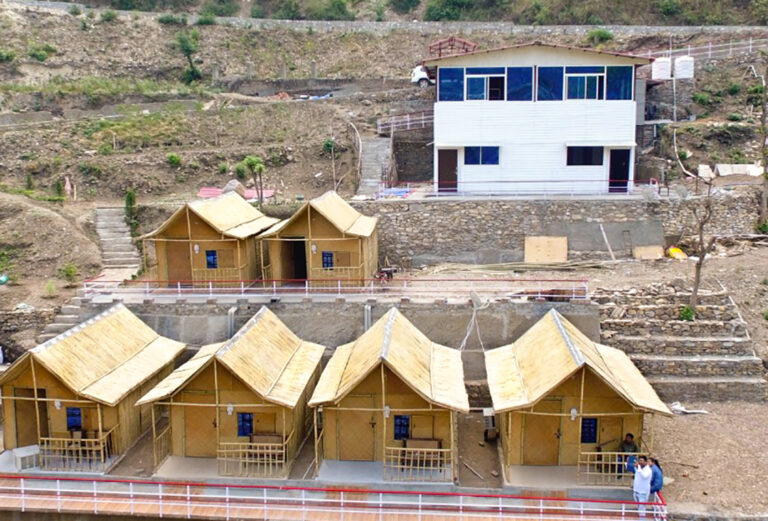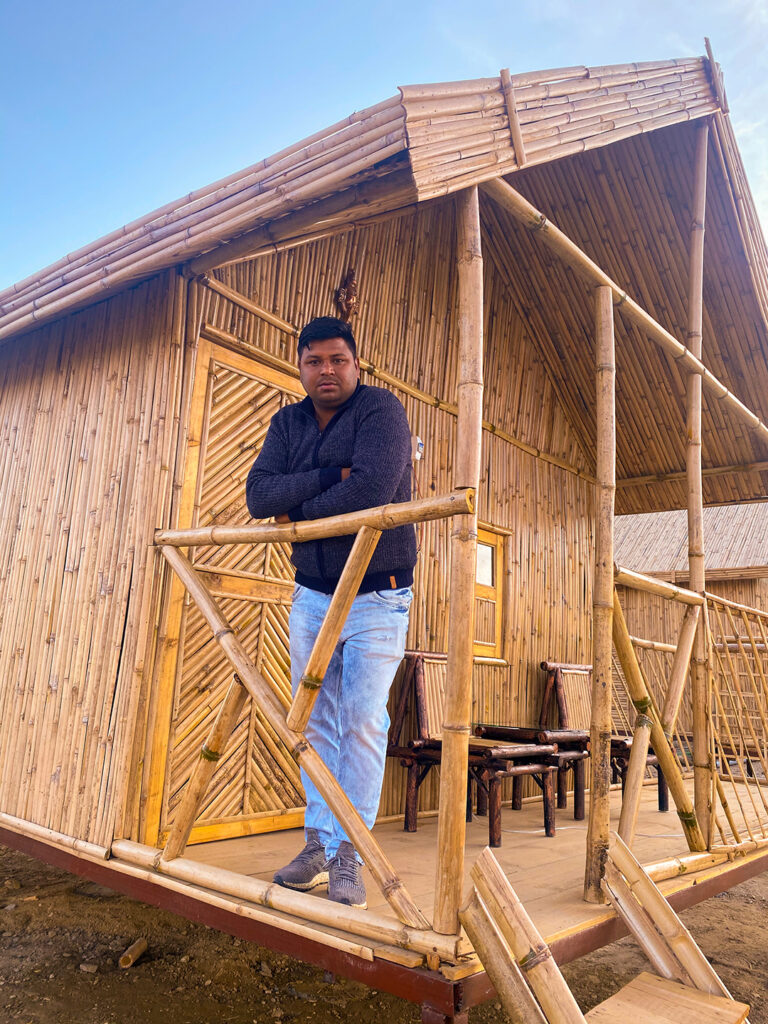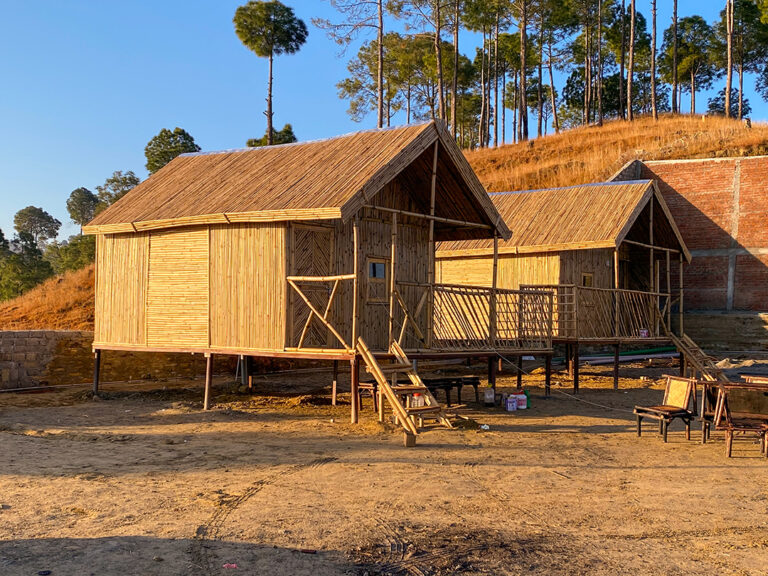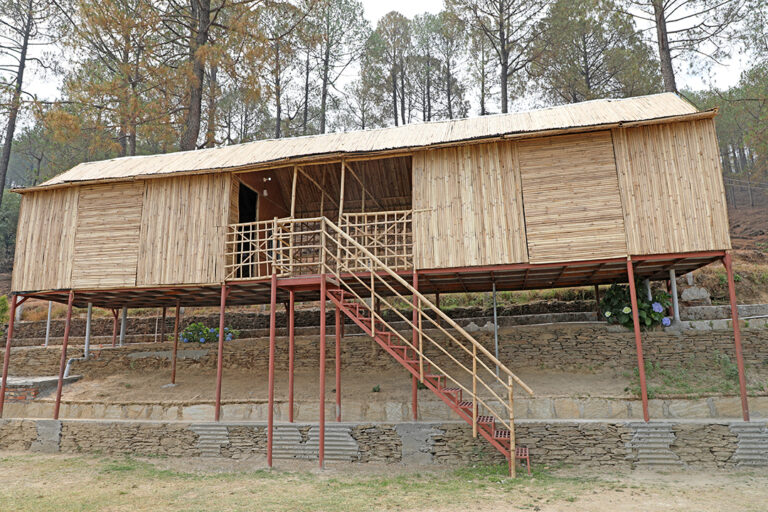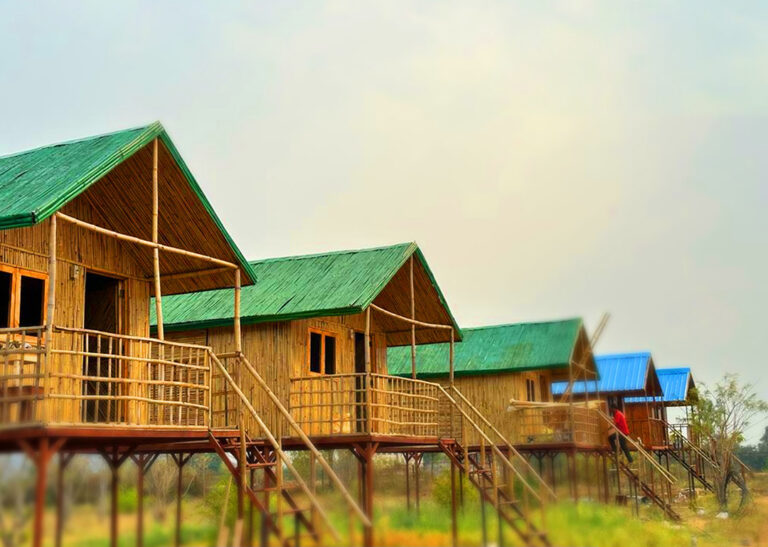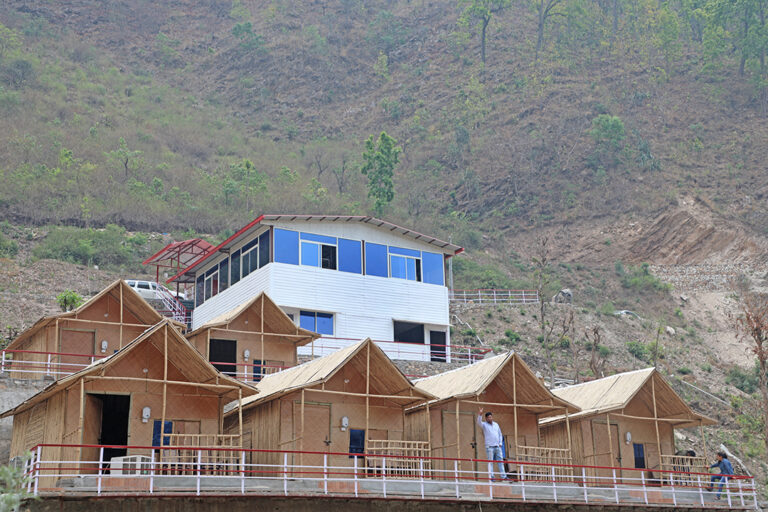BAMBOO COTTAGE
BAMBOO COTTAGE
BAMBOO COTTAGES
A perfect blend of modernity and tradition, Assam kenwood bamboo construction aims to create living space that resonates with nature.
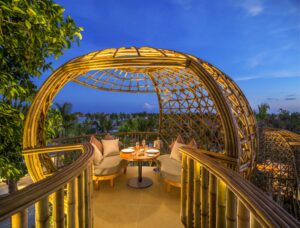
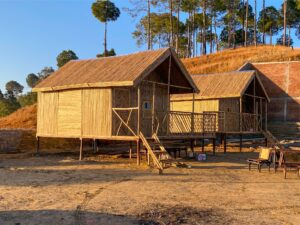
Bamboo is one of the most versatile building materials on the planet. It is a fast-growing, sustainable resource that is becoming increasingly popular for use in bamboo construction, both commercial and residential. Bamboo has a range of advantages that make it ideal for building an eco-friendly bamboo cottage.
One of the major advantages of bamboo is its environmental friendly nature. It is highly renewable and can be grown in many areas without the need for chemicals or fertilizer. Bamboo also captures and stores up to twice as much carbon dioxide as hardwood trees, making it an excellent choice for green bamboo construction projects.
Bamboo also has an aesthetic appeal that makes it an attractive choice for building cottages or villas. Its light colour and natural patterns can add a touch of beauty to any space. Many homeowners prefer a bamboo cottage for its natural charm, as it can be designed to suit both contemporary and traditional styles.
Lastly, bamboo is a very versatile material. It can be used in many ways, from flooring and walls to furniture and fixtures. This flexibility allows easy customization of a home to fit individual needs and desires. In conclusion, bamboo is an excellent choice for building cottages and eco-friendly structures. With its environmental benefits, durability, beauty, and versatility, bamboo construction offers a perfect solution for those looking to create a sustainable bamboo cottage that combines nature with modern comfort.

Building with bamboo is eco-friendly
As a renewable resource, bamboo can be harvested without causing permanent damage to the environment. It’s also easy to grow and does not require the use of chemical pesticides or fertilizers. Furthermore, it is an incredibly durable material and can last for many years if maintained properly. Bamboo is carbon-negative, meaning it absorbs more carbon than it releases during growth. And when used as a construction material, bamboo helps reduce the need for energy intensive building materials like steel and cement. In addition, bamboo’s low weight allows for easier transport and reduced energy consumption.
Bamboo is a versatile material
Not only is bamboo an environmentally friendly material, but it is also highly versatile. It can be used for a variety of purposes, including building farmhouses, cottages and other structures. For example, bamboo can be cut and shaped into beams, boards, and other components that are ideal for construction. The material’s flexibility also makes it possible to create intricate designs and unique architecture. Bamboo is also a great choice for flooring, roofing, and even walls. The material is lightweight and easy to work with, making it ideal for home renovation projects. In addition, bamboo is naturally resistant to water and pests, which helps protect against damage from moisture and infestations.
Bamboo is durable and resilient
Bamboo is one of the most durable and resilient building materials available. It is a fast-growing grass that can reach maturity in just three to five years. Bamboo is naturally resistant to pests, making it an ideal choice for construction in tropical and subtropical climates. Bamboo’s strength and durability have been tested in areas of heavy wind and rain with very positive results. In fact, it has been reported that bamboo structures have survived typhoons and earthquakes that have destroyed wooden buildings. Its resistance to extreme weather makes it the perfect choice for eco-friendly housing in any region.
